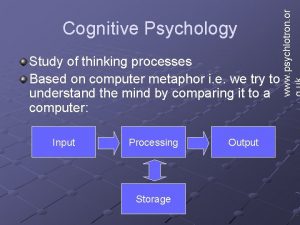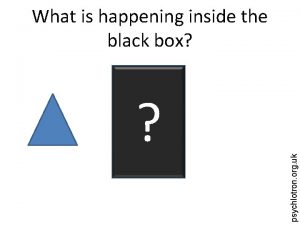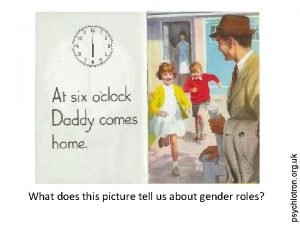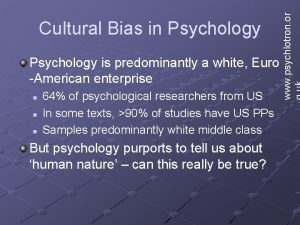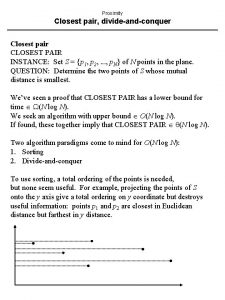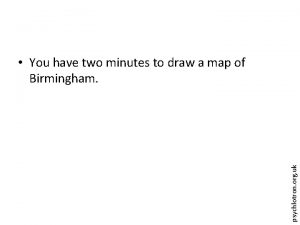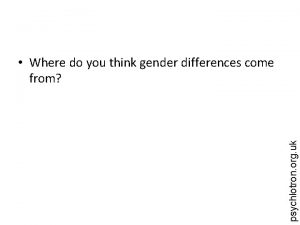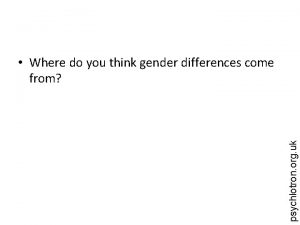psychlotron org uk Pair up One of you

















- Slides: 17

psychlotron. org. uk • Pair up. One of you toss a coin 10 times. The other record on a small piece of paper how many times it comes up ‘heads’. When you have recorded 10 results, give the paper to me. Repeat until I ask you to stop.

Today’s session You are learning to. . . • Make judgements about significance psychlotron. org. uk You are learning about. . . • Probability • Probabilistic research

psychlotron. org. uk • Unlike much of what you are used to in the physical sciences, judgements in psychology are often based on probability

psychlotron. org. uk • When you toss a coin, what is the probability it will come up ‘heads’? • If you have thrown nine heads in a row, what happens to the probability that your next toss will be ‘heads’?

O heads; 10 tails 5 heads; 5 tails 10 heads; 0 tails psychlotron. org. uk • If we plot the results from your earlier coin tosses on the graph below, what shape will we get?

Normal distribution curve O heads; 10 tails 5 heads; 5 tails Unlikely outcomes 10 heads; 0 tails psychlotron. org. uk Likely outcomes

• Does your partner have telekinetic powers? psychlotron. org. uk – Decide who will be the researcher and who will be the participant. – Participant will use the power of their mind to will the coin to come up ‘heads’

psychlotron. org. uk • If your participant’s coin came up heads, does that mean she has telekinetic powers? • So how can we use coin tosses to test if she does?

O heads; 10 tails 5 heads; 5 tails 10 heads; 0 tails psychlotron. org. uk Likely to be caused by chance Unlikely to be caused by chance; perhaps caused by something else

psychlotron. org. uk • How many times out of ten must the participant’s coin come up heads before we accept that the result was not just due to chance?

• Did any participant meet or exceed the criterion? psychlotron. org. uk – Does this (or would this) prove that she had telekinetic powers? – What would we do to check?

Significance psychlotron. org. uk • In psychological research we judge the importance of results by comparing them with what is likely to happen by chance.

psychlotron. org. uk • Everyone choose a number between 1 and 10 and write it down • We’ll divide the class arbitrarily in half and compare the numbers they have chosen • Do we expect that the two sets of numbers will be very different?

• The two sets of numbers will not be identical; they will be different. However: psychlotron. org. uk – The difference may be due to chance – The difference may be due to something else

psychlotron. org. uk • Let’s repeat the test. This time, read what’s on the card before choosing your number.

• The more consistent the difference between the two sets of numbers, the smaller the probability that the difference was caused by chance. • However, we have to decide how unlikely a ‘chance result’ has to be before we will accept that the difference was caused by something else psychlotron. org. uk Significance

Significance psychlotron. org. uk p 0. 05


